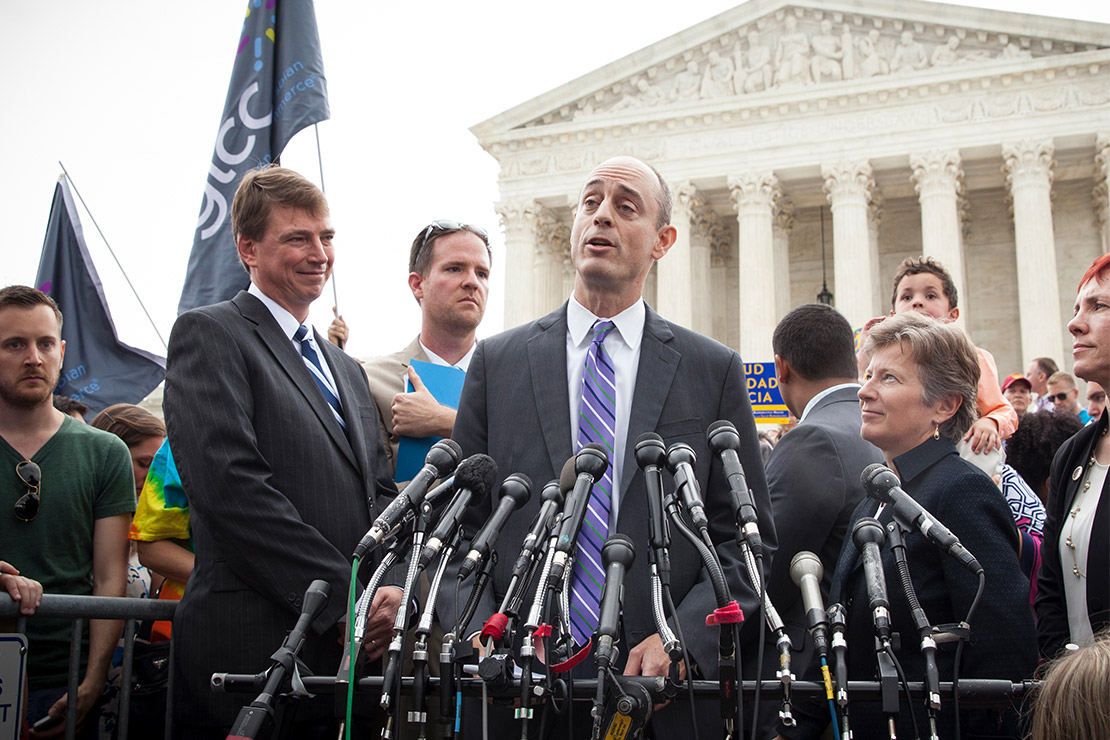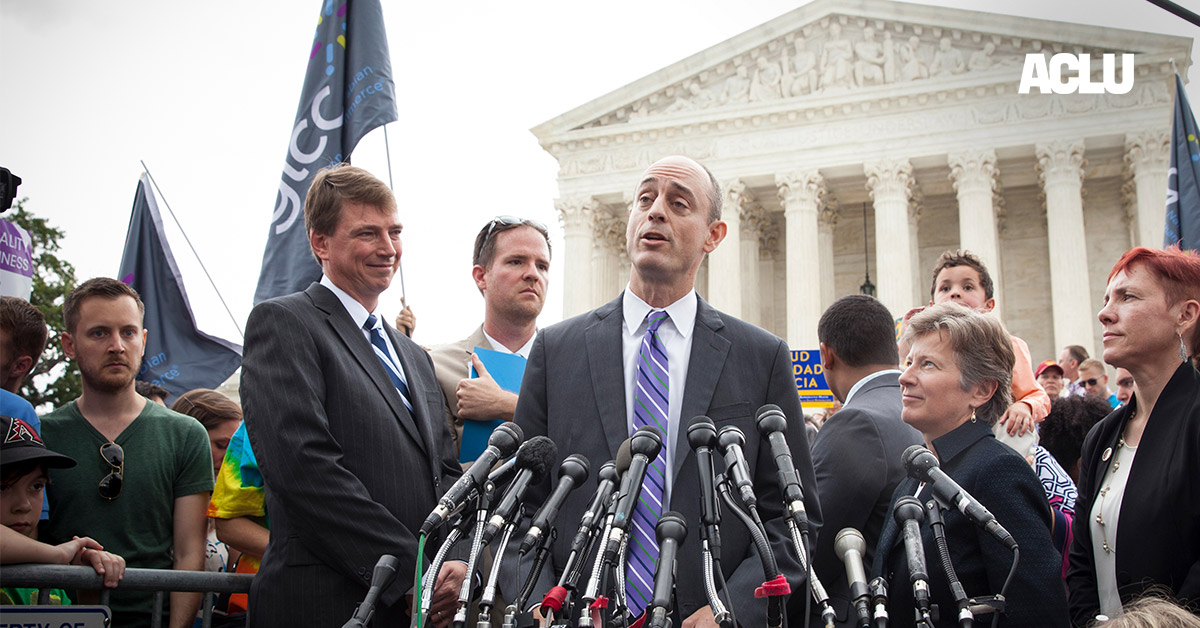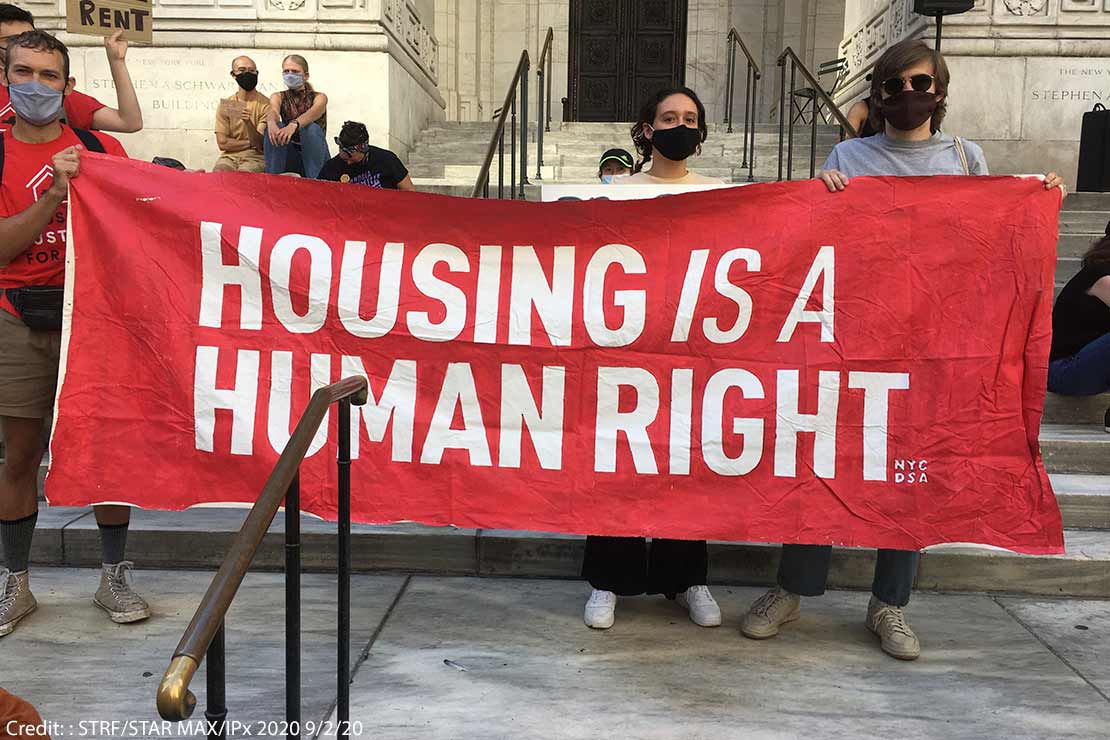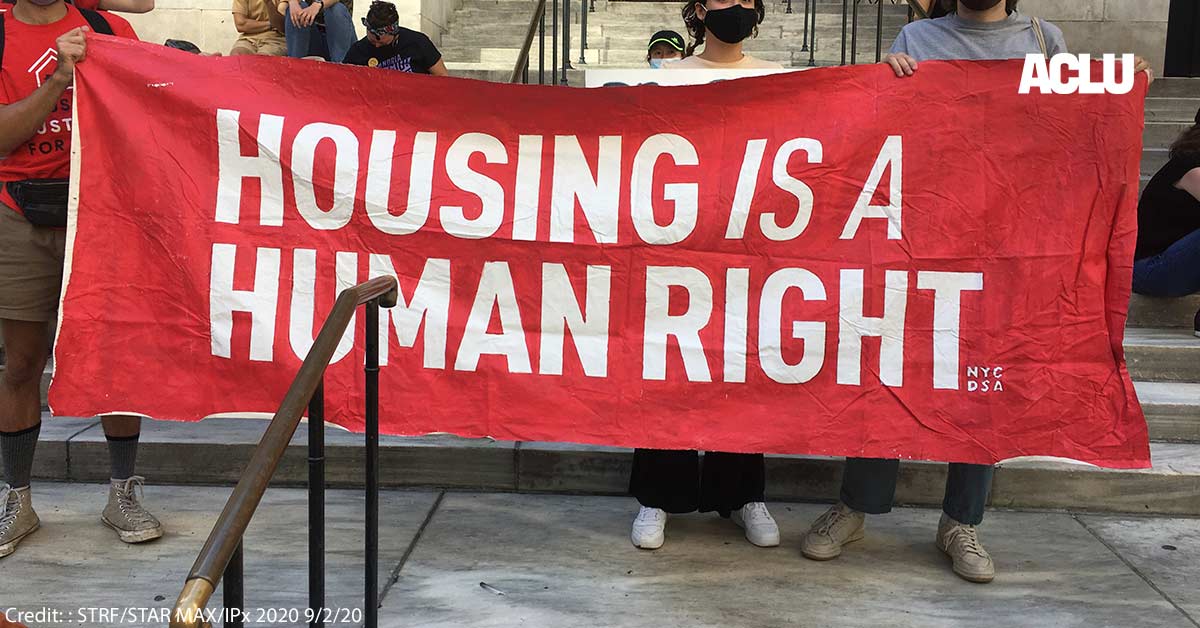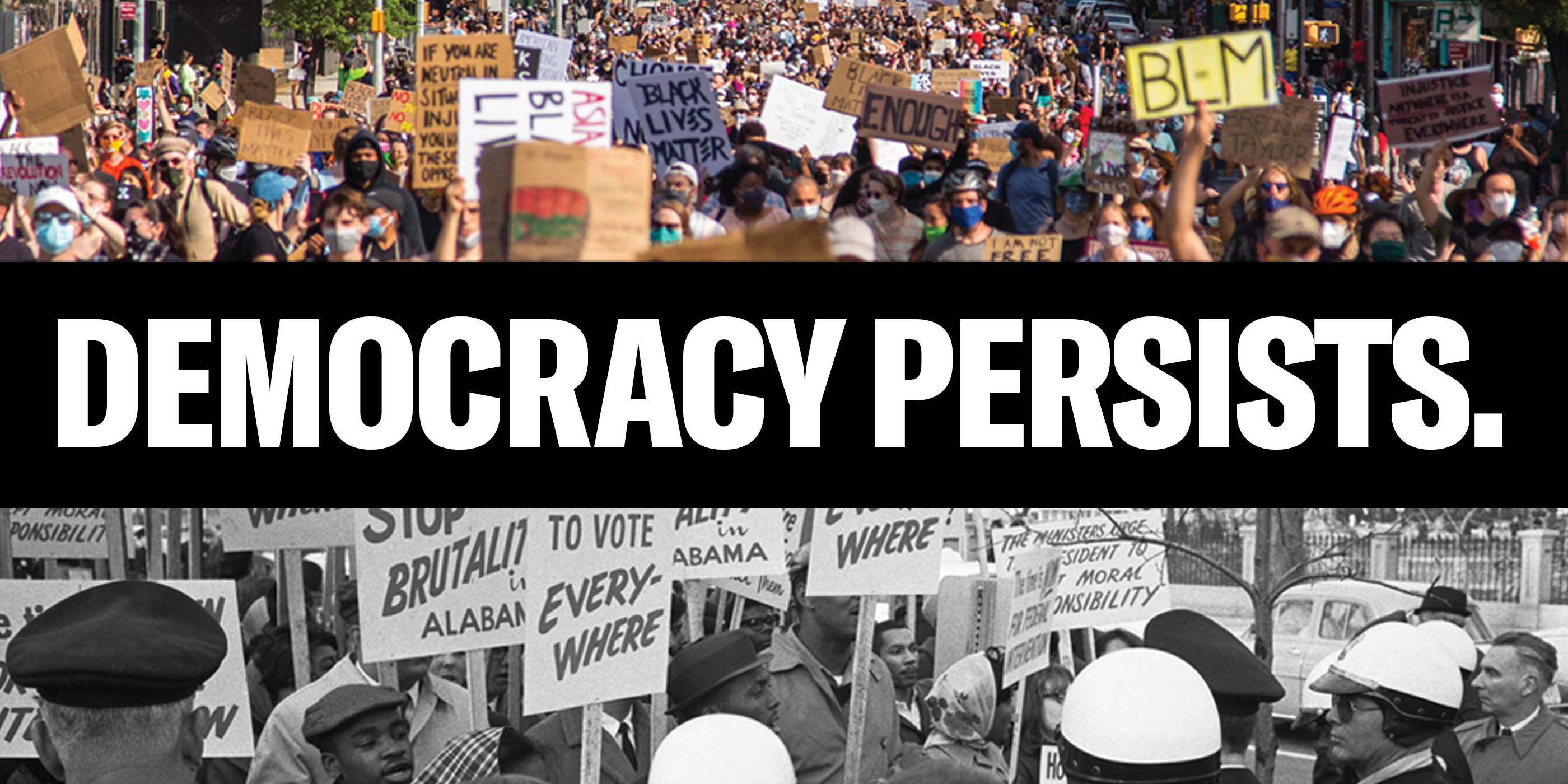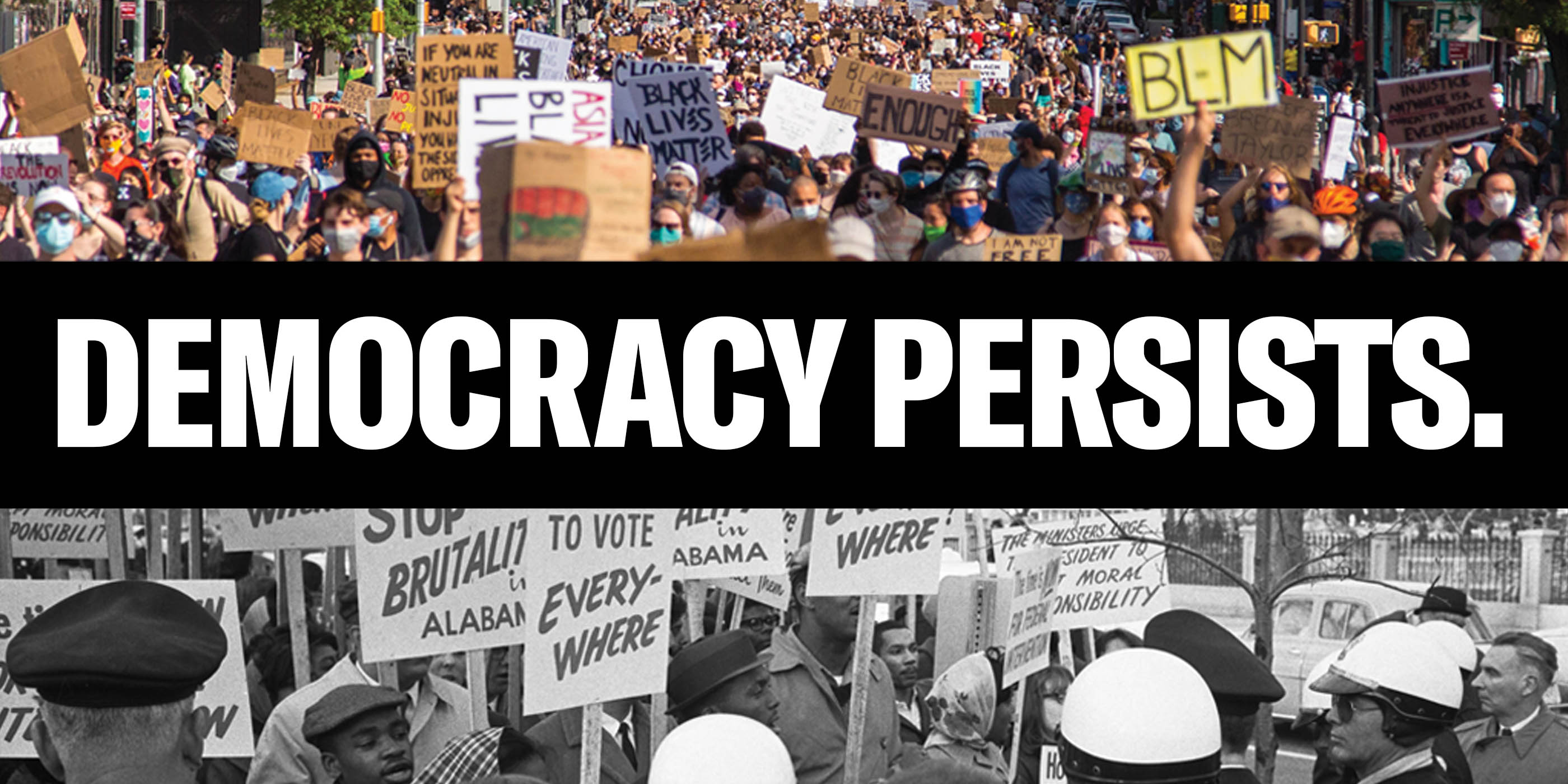By James Esseks, Director, ACLU LGBT & HIV Project
This piece was originally published on Advocate.com.
Joe Biden’s election isn’t the end of our struggle for LGBTQ justice, it’s a new beginning. As hopeful as we are that the Biden/Harris administration will live up to its campaign promises to LGBTQ people, nothing is going to happen by itself. Our community needs to push hard not only to remedy the many harms that the Trump administration inflicted on us, but also to build a more expansive demand for justice from the federal government. We need to fight back against the extreme attacks we face in many states, and do damage control in the newly super conservative courts stacked with anti-LGBTQ judges. This is no time to let up.
The federal level: Un-doing the damage from Trump and creating stronger protections.
The Trump administration spent the last four years attacking LGBQ and especially transgender and non-binary people. The first thing we have to do is reverse these harmful policies. They range from the transgender military ban to a proposed rule that would allow homeless shelters to turn away trans people to the rescission of guidance for school districts about their obligations to prevent discrimination against LGBTQ youth.
We must all urge the new administration to swiftly root out each of these policies — and many more — from the federal rulebook. And then we need to go further and not just reverse Trump’s many regressive policies, but use the full power of the federal government to create more protections for LGBTQ people in all realms of society, from employment to housing to schools to prisons, jails, and immigration detention facilities.
These new protections should include the Equality Act, which will add express protections for LGBTQ people to the Civil Rights Act and also fill several important gaps in that law for all women and people of color. The federal government should also take steps to ensure that transgender and non-binary people have access to accurate identification documents, a move that would reduce the violence and harassment that many trans folks face.
Fighting attacks in the states.
Over the past several years we have seen anti-LGBTQ bills proposed repeatedly in state legislatures. With the defeat of Trump, many of the anti-LGBTQ advocates who have been able to advance their agenda through high positions in his administration will head back to the states, where they will bolster the dangerous efforts to attack LGBTQ people. We need to fight back.
The coming 2021 state legislative sessions are likely to include many anti-trans bills, such as proposals to criminalize doctors who provide gender affirming health care to transgender youth, or bills that would bar transgender people from participating in sports. We also anticipate a new wave of bills seeking to create religious exemptions that would license discrimination against LGBTQ people in a range of contexts from health care to schools.
We have to stop these attacks from taking hold at the state level. The ACLU will be educating members of state legislatures and the news media about why these proposals are discriminatory and harmful. And our offices in every state, D.C., and Puerto Rico will mobilize people to turn out at statehouses across the country and lobby their representatives to oppose these bills. This winter and spring will be an all-hands-on-deck moment for our community.
Doing damage control in the courts.
The Trump administration and the Republican-led Senate packed the federal courts — from the Supreme Court down through the lower federal courts — with extremely conservative judges, many of whom had clearly articulated anti-LGBTQ views. So we can’t count on the courts to protect LGBTQ rights in the way that they have sometimes done in the past.
The danger is not just that the courts will fail to recognize the rights of LGBTQ people under existing law. It’s that they may well rule that the U.S. Constitution grants anyone with a claimed religious objection to LGBTQ people, or even just an objection to being near a trans person, a right to discriminate. In fact, the U.S. Supreme Court recently heard arguments in a case that could give a religiously affiliated, taxpayer-funded foster care agency a constitutional right to discriminate against LGBTQ people when performing a government service. That’s terrifying.
To fight this, the ACLU will prioritize getting involved in the cases seeking a constitutional right to discriminate and do our best to do damage control wherever possible.
There are still fair-minded judges on the federal bench who will follow the law. For example, back in June, the Supreme Court ruled in Bostock v. Clayton County that federal law bars anti-LGBTQ discrimination in the workplace, recognizing that anti-LGBTQ discrimination is a form of sex discrimination. In the few months that followed, five federal courts ruled in favor of transgender plaintiffs raising claims of sex discrimination in health care, schools, and sports. That gives me hope for the role the courts can still play in our movement.
Those courts could rule for the transgender plaintiffs in significant part because of how much the country has learned over the past few years about the reality of transgender people’s lives. That education happened because transgender people shared their stories with the courts and thousands of voices — from parents and friends to doctors, business owners and teachers — shared that protecting people from discrimination is a basic American value, and one that doesn’t harm anyone else.
We can still make progress if we work together. If we as a community stay engaged and fight for each other and for other communities who are facing attacks, we can fix the damage at the federal level and create even better protections for LGBTQ people going forward. We can stop the anti-LGBTQ bills that will be proposed in the states. And we can work in the courts both to do damage control and to seek progress where-ever we can.
But to realize all of this promise requires us to reinvigorate our activism, rather than to rest on our laurels or to assume that someone else will take care of the work. It’s up to us. Together, we can do it.
Date
Tuesday, November 10, 2020 - 3:00pmFeatured image
